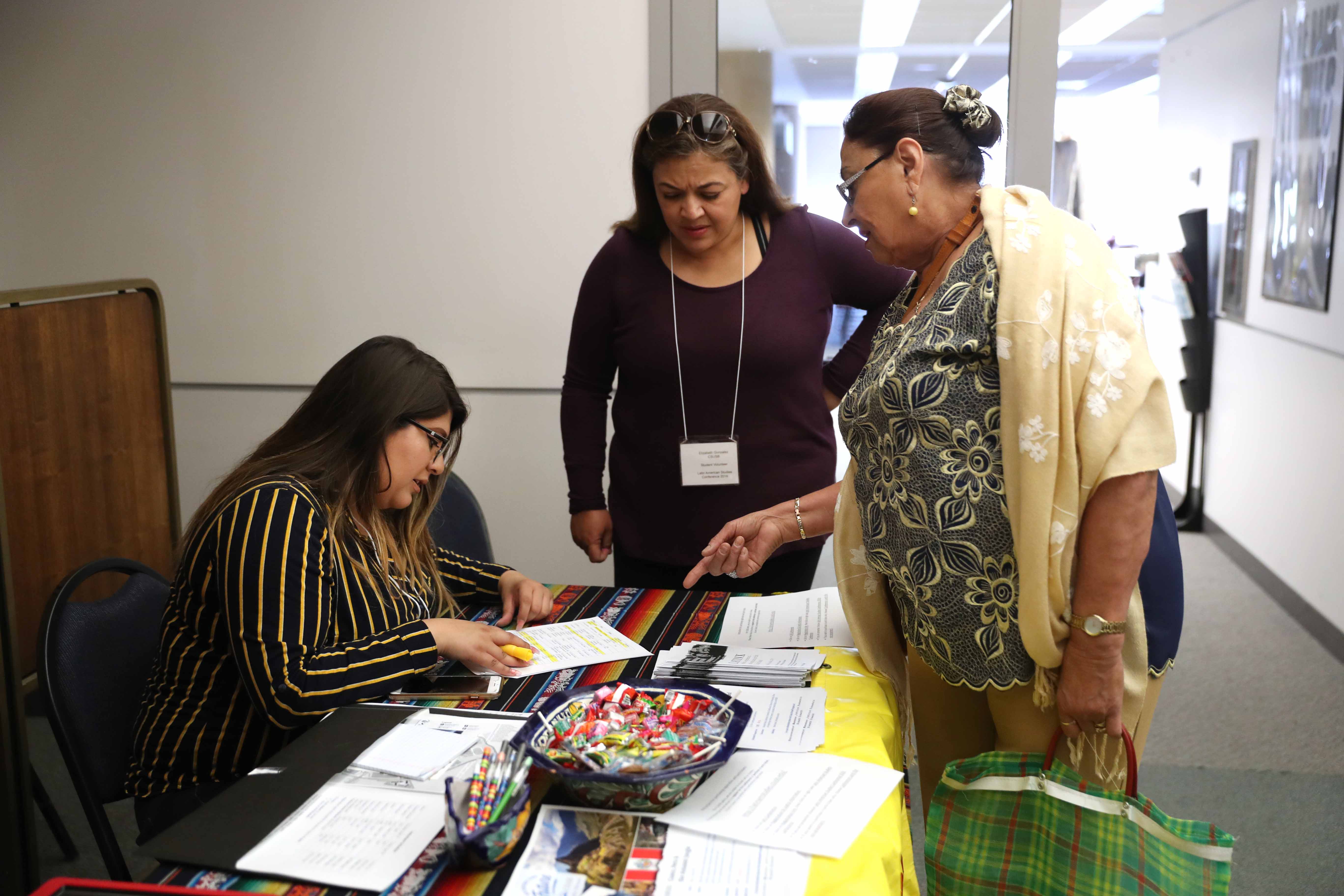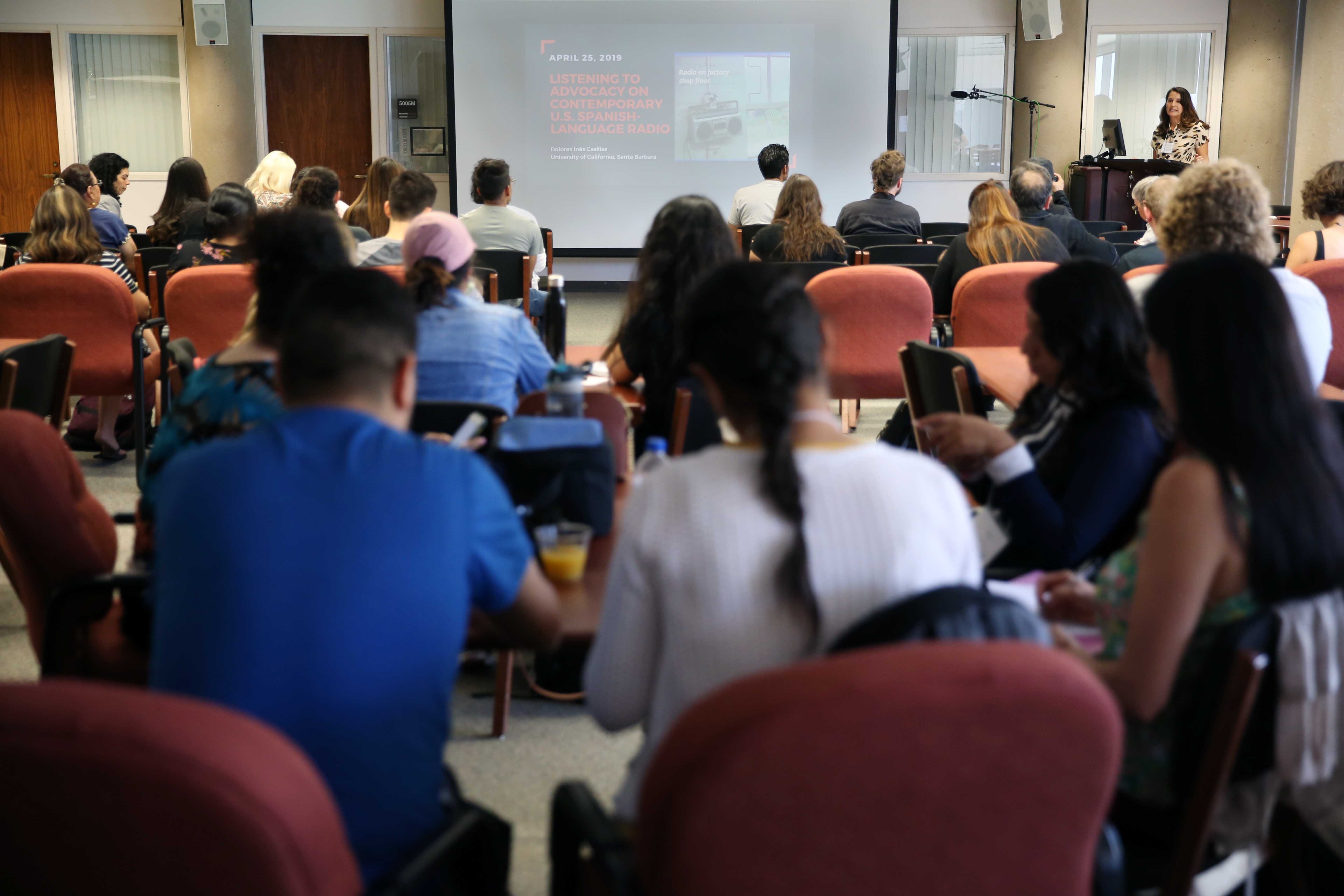Joe Gutierrez Office of Strategic Communication (909) 537-5007 joeg@csusb.edu

Cal State San Bernardino hosted the annual Latin American Studies Conference: Study of the Americas, which explored Latinx politics, experiences and expressions in the United States and the U.S.-borderlands region. The two-day event, held April 25- 26, took place in the John M. Pfau Library. This year’s conference featured three keynote speakers: Tomás F. Summers Sandoval, Jr., an associate professor of history and Chicanx-Latinx studies at Pomona College, presented on April 25 “The Living Archive of Latinx America,” in which he talked about the importance of oral histories in the Latino community. Sandoval’s research focuses on the oral history of the Latinx community, or “Brown Baby Boomers,” and the oral history Latino veterans of the Vietnam War and how they adjusted after returning from the service. “These are stories of marginalization and integration, of patriotism, sacrifice, survival and adaptation. They are stories of life and death,” Sandoval said. “All of them are samples from what I am calling, this human living archive that is part of our communities and even part of each of our families.”Dolores Inés Casillas, an associate professor of Chicana and Chicano studies at the University of California, Santa Barbara, presented that same day a talk on how Spanish language call-in talk radio programs such as “El Bazar” from Radio Bronco have emerged and have dominated radio airwaves in the Latin American community. “El Bazar,” is a marketplace radio program where listeners can call in to sell items and attracts callers from all over the United States.These programs cover a number of areas, including health, finance, pop psychology, the law and even alerts on raids by immigration officials, said Casillas who added that these radio programs provide anonymity so callers can talk without giving their names and yet give them a voice to express their thoughts or ask questions without anyone questioning their legal status.“The power of radio is its intimacy,” Casillas said.Ed Gomez, an assistant professor of art at CSUSB and director and co-president of MexiCali Biennial, presented “Creating Opportunities and DIY Strategies in the Art World” on April 26, focusing on how artists can generate interest in their work and exhibit their work when left out of mainstream museums or overlooked by curators.In 2006, he co-founded the MexiCali Biennial, a bi-national art and music program addressing the region of the U.S.-Mexico border, which showcases exhibitions on both sides of the border.As part of this year's conference, there was also a featured presentation by members of the CSUSB/LEAD Organization Delegation who recently visited Santiago de Cuba and presented at the Sixteenth International Symposium on Social Communication. The group narrated a visual slideshow from their recent first-hand experience to foster interest, knowledge, and understanding of the very diverse peoples, processes and histories shaping Cuba.LEAD was the only U.S.-based academic entity and global partner that served as a co-sponsor of the international event with delegations from 26 countries. The academic conference was hosted by the Centre for Applied Linguistics, a branch of the Cuban Ministry of Science, Technology and the Environment.The annual Latin American Studies Conference was created to foster interest, knowledge and understanding of the very diverse cultures of Latin America and the Caribbean. It welcomes research in Latin American and Caribbean art, culture, music, indigenous peoples, literature, economics, politics and history. And it is affiliated with the Latin American Studies Minor Program that offers students the opportunity to take interdisciplinary courses on Latin America and Latinx Studies. This year’s conference was sponsored by the Center for International Studies and Programs (CISP), College of Arts and Letters, College of Social and Behavioral Sciences, Department of World Languages and Literatures, John M. Pfau Library, University Diversity Committee, and Phi Kappa Phi. For more information, contact Teresa Velásquez, associate professor of anthropology, at tvelasqu@csusb.edu or visit the Latin American Studies Conference website. For more information on Cal State San Bernardino, contact the university’s Office of Strategic Communication at (909) 537-5007 and visit inside.csusb.edu.

